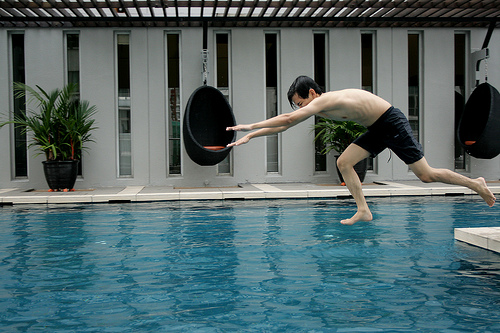March 12, 2015
By law, the homeowners govern mandatory property associations, whether for single-family homes or condominiums. They are roughly equivalent to the shareholders in a corporation. The property manager and employees answer to the board of directors, who in turn answers to the owners. Unfortunately, many homeowners have experiences where this structure seems turned upside down. The property managers, accountants and lawyers hired by the association explain to the board and the owners what to do.
Such a “role-reversal” occurs in circumstances where an association improperly accuses an owner of violating the rules and regulations. Homeowners are told that rules enforcement is necessary to “protect property values.” However, to a homeowner, loss of community privileges, limitation of the use of the property or payment of a fine decreases the practical value of their property. Associations sometimes take direct, unauthorized action without any due process. Usually, they begin the rule enforcement by sending a written notice of violation to the owner. This is the “opening salvo” in a process where an unassisted owner is likely at a disadvantage even when the facts and rules are favorable. Why? Associations pursue rule violations regularly. They usually hire experienced, capable community association lawyers. Property managers prepare to testify about the facts. The board members are often more familiar with the process than the other owners. It is important that owners don’t go it alone on a notice of violation.
Virginia law requires the association to follow established rules enforcement procedures:
- Complaint Made & Reviewed: Before any proceeding begins, another owner, a board member, manager or employee of the association must bring an allegation of a rule violation before the association leadership.
- Legal Grounds for Adverse Action: The General Assembly has not granted associations carte blanche authority to run their communities. Property associations do not have the broad powers of counties or cities. They only have the legal authority granted by law and properly adopted in the declarations, covenants and bylaws. Rules, regulations and resolutions must comply with these higher legal authorities. In substantial disputes, an owner is best served by consulting with an attorney who is familiar with community associations but doesn’t cater to them. Confirming the absence of legal authority requires knowing where to look, what to look for and what to do next. Each association has different documents that may affect an individual owner’s proceeding.
- Written Notice of Violation: Virginia law requires the board to send the owner a written notice of the alleged violation prior to taking any adverse action. The notice must give the owner a reasonable opportunity to correct the violation. Homeowners may need to consult with licensed contractor about the necessity or cost of any repairs that cannot be addressed on a DIY basis.
- Notice of Hearing: To continue the process, the Association must send the owner advance notice of any hearing, identifying actions that the association may decide to take. The owner is entitled to receive it at least 14 days before the hearing.
- Participation in the Hearing: Violation hearings are conducted before the Board of Directors or some other quasi-judicial body specified in the Association’s governing documents. What can a homeowner expect at the hearing? Shu Bartholomew, host of weekly radio show “On the Commons,” explains the importance of not going it alone: “The last thing a homeowner wants is to be sitting – alone – on one side of the table when 5-7-9 board members, managers, recording secretaries, attorneys, and every other Tom, Dick and Harry in a semi-official capacity on the HOA is on the other side of the table, accusing the owner of being in violation of something, that the HOA may not even have the authority to enforce. It is intimidating and a very clear picture of the imbalance of power in HOAs.” The owner should be prepared for this possibility. But owners can have a “team” too. Owners may be represented by legal counsel at the hearing. The General Assembly saw a need to pass legislation making this a statutory right. In addition to an attorney, the owners should consider inviting witnesses and supporters.
- Rules Enforcement Decision: The association must send the owner the hearing result in writing within 7 days of the hearing. The result may consist of monetary charges or suspension of privileges, such as the clubhouse, pool, gym, etc.
- Effect of Decision: Virginia law allows for unpaid fines assessed pursuant to this process, if valid, to be treated like an unsatisfied assessment against the owner’s property. The association may put a lien on the real estate. The suspension of privileges may continue until the matter is resolved.
Virginia property owners are entitled to due process in these association proceedings. An owner is best served by taking action to avoid an adverse decision. However, the internal decision-making process is not the end of the story. Owner’s rights can be defended by bringing legal action in local courts. If your association is working with a team to assess a fine, suspend your privileges or take any other action against your property rights, don’t go it alone.
Authorities:
Virginia Code Section 55-513 (Adoption and Enforcement of Rules)[Property Owners Association Act]
Photo Credit:
Diving. The Ascott Kuala Lumpur via photopin (license)(to illustrate a common area privilege. Does not depict a community association property in the U.S.)


